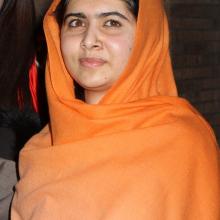woman
U.S. speedskater Maame Biney, just-turned 18, has a smile that can light up any room, a giggle that has charmed Olympic audiences and a joy that her coaches say has carried her so far in her athletic career at such a young age.
[W]hen I was in junior high, I decided I wanted to become the first black woman ordained in the Lutheran Church. ... At Wesley I enjoyed being a student again, until one of the black seminarians asked, “How can you be black and be Lutheran?” I didn’t know. I had never thought about it. The Lutheran Church is predominantly white, ethnically German and Scandinavian. It is highly structured and without the display of lively emotions most blacks are used to in their religious experiences. The Lutheran Church was the only church I had ever really known, and yet suddenly I was thrust into an identity crisis that really rocked me.
Today, August 26, is Women's Equality Day. The date was selected to commemorate the 1920 passage of the 19th Amendment to the Constitution, granting women the right to vote. In honor of such a day as this, we decided it’d be fitting to highlight the voices of women by sharing our top five posts (by number of page views) authored by women from the past year.
A New Normal: Ten Things I've Learned About Trauma, by Catherine Woodiwiss (Sojourners Associate Web Editor)
Not As Helpless As We Think: 3 Ways to Stand In Solidarity With Ferguson, by Rachel Held Evans
How Not to Raise a Daughter, by Sandi Villarreal (Sojourners Web Editor and Chief Digital Officer)
World Vision Reverses Decision on Same-Sex Marriage, Calls It 'A Mistake,' by Sarah Pulliam Bailey
How I Kissed Evangelizing Goodbye, by Cindy Brandt
And while we’ve come a long way over the past 94 years, we also recognize there is still much to be done. So stay tuned to our Women and Girls Leading through Faith and Justice Initiative. We hope to have some exciting updates to share soon (including a new hire — you can still apply for our Women and Girls Campaign Associate position here)!
The year 2013 may well come to be known as the Year of the Woman.
Women of high socio-economic status both applauded and lamented the publication of Sheryl Sandberg’s Lean In, while women of a certain age waxed nostalgic over the 50th anniversary release of Betty Friedan’s The Feminine Mystique. Those under 30 were surprised that the latter book existed, and those in their middle years realized the reading assignment that somewhat bored them as inapplicable in college was now vitally important, as they struggled with work/life balance and debated whether to stay home with the kids or remain in the paid workforce.
The “mommy wars” raged, and were fueled by controversial statements and work policies by women in positions of leadership. Stay-at-home moms and paycheck-earning moms stared one another down across a divide narrower than they realized, and bloggers everywhere called for a united female front.
A Christian nun who became the first woman bishop of South Asia’s Anglican community said that so far her appointment has silenced critics who believe only men can play leadership roles in the church.
Speaking on the phone from the Nandyal diocese in the southern state of Andhra Pradesh, the Rev. Eggoni Pushpalalitha, who was appointed a bishop of the Church of South India on Monday, said she faced bias against women in leadership roles “but only until my consecration.”
“Those who used to talk about it are now touching my feet,” said the 57-year-old bishop, who holds degrees in economics and divinity, referring to an Indian custom of showing respect.
WHEN A COLLEAGUE told me Sojourners had received a review copy of the latest Thursday Next novel by Jasper Fforde, I was delighted—and confused. My delight came because I’m a huge fan of the series, whose protagonist Thursday lives in an alternate-reality U.K. and, in previous novels, has worked for Jurisfiction, the policing agency within fiction. My favorite scene was when, several novels back, she helped Great Expectations’ Miss Havisham moderate an anger management group in Wuthering Heights, set up to keep it from going the way of “that once gentle comedy of manners, ‘Titus Andronicus.’”
However, it was unclear why anyone would send a book from this series to a Christian social justice-oriented magazine. My best guess, as I gleefully devoured The Woman Who Died A Lot, was that some hilariously over-optimistic publicist thought we’d be interested in the novel’s subplot in which God reveals Godself by smiting various cities with columns of fire—sometimes in response to sin, sometimes to “unimaginative architecture, poor restaurants, or even an overly aggressive parking fine regime.” Thursday’s hometown of Swindon is next on the smite list, possibly to increase God’s bargaining position against the locally based Global Standard Deity church. The GSD, having unified the world’s religions, plans to use its “collective bargaining powers” to open formal negotiations with God, starting with the question, “What, precisely, is the point of all this?”
If I were Brian McLaren, I could no doubt get mileage out of this negotiating-with-God idea, and out of the novel’s various speculations about whether notbelieving might make God (or, in a separate subplot, an asteroid hurtling toward the Earth) cease to exist. Other storylines—a villain who can alter memories convinces Thursday she has an extra child; Thursday’s teenage son Friday is apparently fated to murder someone who may or may not be an irredeemable louse—could, at a stretch, fuel theological debate about identity or free will.
I’ve moved five times in five years of marriage. My husband is a pastor. I am a journalist. He is forever discerning, forever visioning— I am forever antsy.
This latest move to Washington, D.C., led me to think a lot about the “call” to serve. My husband and I were dating, then engaged, then married during his four years at seminary. I suppose I knew what I was getting myself into. (Nope, not one little bit.)
During those years, it was drilled into my brain that even though I felt a “calling” as a writer, a storyteller, etc., it was extremely different from the call.
Read: What your husband is doing is more important than anything you will ever do in your lifetime — ever. Except maybe have his progeny, and then, still, it’s a toss-up.





